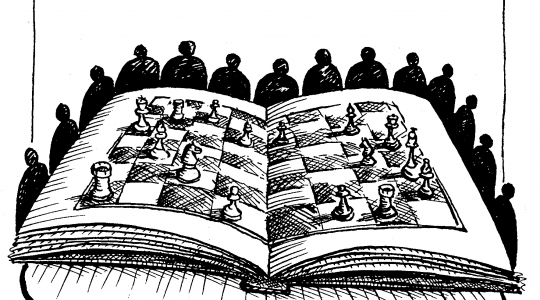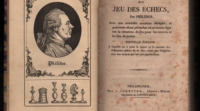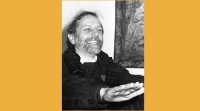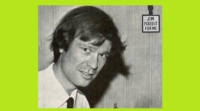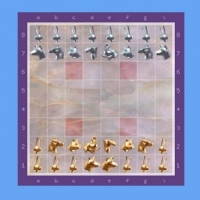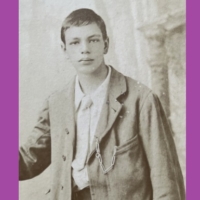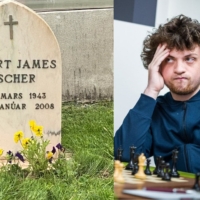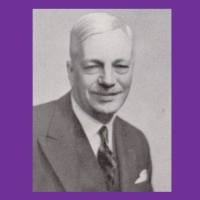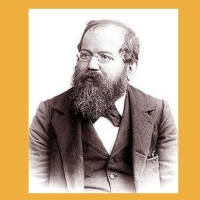Under the Black Sun
Eric Woro
Axiom Books, 384 pp., $8.95
I had no hesitation in choosing to review Under the Black Sun. All I knew was that it was ‘a chess novel’. I believe that most chess players spend so much time with their noses buried in traditional chess literature that they hardly ever actually ‘read’ anything else. What a shame. I do make an effort to read any kind of ‘chess novel’ that comes my way, and so should you; after all, it’s a small genre. Those of you who have never read Nabokov’s The Defence, Zweig’s The Royal Game, or Tevis’s The Queen’s Gambit, to name but three, should go away and do so immediately. In the non-fiction department, Searching for Bobby Fischer is the obvious choice, which was even made into a film (Innocent Moves). If you read Italian or French, you can try to find La Variante di Luneburg/ La Variante de Luneburg by P. Maurensig; I’m currently discovering Le Tableau du Maître Flamand (original title, La Tabla de Flandes, in Spanish) by A.Perez-Reverte.
The blurb on the back cover of Under the Black Sun promises a lurid tale of butchered bodies on Californian beaches, a chess prodigy, his psychotic, schizophrenic, dead father, and a vampire called Monique. The ingredients sounded quite delicious. . .
The novel begins powerfully. On page 2 we already meet a certain Austin Tisdall, and one cannot help but wonder: can there be some cryptic connection with Jon Tisdall, the American Grandmaster who now resides in Norway? We quickly become alarmed about Austin’s relationship with his mother, Sadie, and the dangerous voice of religious fanaticism starts drumming out its fiery address. By page 8 young Austin is playing through Tal games on his pocket set. Three pages later, and he’s fantasising about putting on his mother’s bra and panties. It’s weird, intriguing and disturbing: in short, a good start, and much closer to Stephen King’s Carrie than to Daniel King’s Winning with the Najdorf.
Chapter 3, and we’ve moved forward a generation, to Martin Fairchild, a freshman student at UCSD (this acronym may not need deciphering to American readers, but it does for the rest of us – University of Chess, Sex and Drugs is my guess, given what seems to go on there most of the time), son of the late Zachary (Austin via a name change). The lovely Rachel, Martin’s nymphomaniacal girlfriend (‘Her dark armpits glistened with sweat’), spends most of the book participating in convoluted philosophical debate with MF (FM backwards – is this significant?) and basically giving him a good time. She tells him of the ‘vampire murder’ on the beach, and he takes his shorts off. We later learn of the bizarre suicide of Martin’s father years before, and the note he left behind including the words ‘auto-da-fé’ (this must surely be a sneaky reference to Elias Canetti’s Auto da Fé, the novel which eerily predicted the rise of Fischer, and which by all accounts is a rattling good read, although I have never been able to lay my hands on a copy: can anyone help?). We are introduced to Zoran, the Yugoslav chess master who persuades Martin’s mother (amazingly they do not end up in bed) to let him take over the boy’s chess education. Zoran soon assumes extra responsibilities: he packs Martin and Rachel off to the mountains so that they can do their thing (‘I think you either need to get drunk, or get laid. Preferably both. Over and over. However long it takes’), which allows Woro to shock and thrill us with one of the novel’s many sex scenes; the pornographic details include, on this occasion, a confused grasshopper.
The plot, such as there is, proceeds in a measured and linear fashion. Martin studies chess, plays chess, talks chess. Even Rachel plays. (It seems as if everyone in the book has a good knowledge of the game; this is completely unlike real life, of course.) When he’s not doing chess Martin is wondering about Art and Existence and Reality. Meanwhile more bodies are turning up on the beach. A violent confrontation with one Ken Griswold leads to Martin being suspended from college; the ensuing hospital visit is one of the oddest episodes in an already odd book. Unable to attend university, Martin finds employment at the conveniently close Caissa Times, a chess magazine run by a motley crew of mildly deranged individuals, chief of whom are Bill Speakman and Lance Golem. One American reviewer enjoyed these characters more than any other aspect of the novel. Martin quickly infuses new ideas into the business and goes on to be made Books Editor. At this stage it is worth noting that the author himself was Books Editor for International Chess Enterprises (Yasser Seirawan’s outfit in Seattle; they produce Inside Chess) from 1992 to 1994. I know this because it says so on the back of the book. Do you see any similarities between Mr Eric Woro, the author, and Martin Fairchild, the main character in his novel? Well, do you?
Zoran tells Martin to go to Budapest and play some tournaments in order to make some IM norms. ‘It’s the easiest way I know of to get your title,’ he says. He gives Martin the details of a man named ‘Laszlo’ in Hungary. Of course Woro is referring to Mr Laszlo Nagy and his First Saturday events. This seems to me to stretch the verisimilitude to breaking point: why not invent some tournaments in Bucharest or Bratislava? It is supposed to be a work of fiction, after all. Likewise, when Martin suggests that Caissa Times begin publishing opening booklets, there is great discussion of the Trends series. I hardly think that such topics warrant inclusion in a novel, although Richard O’Brien will disagree with me (at least Kingpin isn’t mentioned.)
Chapter 16 will delight or infuriate, amuse or confuse, depending on one’s reading tastes. It is the spiritual halfway mark in the book, when Martin meets Monique, the femme fatale, a 400-year-old vampire ‘with an hourglass figure and voluptuously curvilinear accessories…’ (whatever can Woro be going on about?) who has not enjoyed a man since Andrew, her former lover, was staked in their conjugal coffin by the local townspeople. Monique wreaks a fitting (literally) revenge upon their ring-leader, the self-styled psychic Romany Maxwell, which is definitely not for the squeamish. I was delighted to learn that in astrology Scorpio is the sign which governs the genitals.You won’t find that kind of titbit in The Complete Book of Gambits. Monique is an interesting creature. Seeing how Woro crafts his material, I do wonder whether he took her name from the Monique to be found inside New In Chess next to the bit about Readers Service and Subscriptions. He’ll never admit it, but I bet I’m right.
Back home again, Rachel dumps Martin on the spot when he confesses his unfaithfulness. Things are getting worse at Caissa Times. He spends more and more time out surfing. He has another fling. (The surf scenes and the sex scenes are constantly competing for space.) He meets a strange girl on the beach. More bodies (it’s easy to forget about the throat-ripped corpses littering the coastline). Then he loses his job: the guys from Caissa Times take all his great ideas and kick him into touch. Martin swears revenge. (One asks oneself whether any of this is based on incidents which may or may not have happened at Inside Chess while Woro was working there.) He goes into a club and meets the beach girl again, who is Monique. They end up back at her place, where the usual happens.
And after that. . .
After that, I won’t tell you: you’ll have to buy the book and find out. If you’ve read Dracula then you’ll have a pretty good idea. As Under the Black Sun approaches its climax, then so, in Woro’s capable hands, do several of his characters. In the final chess game in the novel (and there are a great many) Martin loses to Zoran, which seems to be his first defeat in the entire book; even surfing no longer appeals as it once did. The cycle has reached its end, the past finally buried, and those people not extinguished by Mr Woro’s word-processor can look forward to happy times. Until Under the Black Sun Two, that is.
The author writes in a deliberately difficult style at times, littering the text with literary and philosophical allusions, name-dropping for no particular reason (Zelda Fitzgerald, Camus, Milton, Emma Bovary, Faust, etc.) other than perhaps to show us which books and writers he has studied. His characters are often asking each other questions like: ‘Haven’t you ever read Ayn Rand?’ There’s a scene where Martin’s interlocutor tells him to ‘…read Derrida, Foucault, Lacan’. It’s pseudo-intellectualism of the kind satirized by Woody Allen. Even more irritating is the moment when Monique throws Martin against the wall in her library, and three books fall on his head. They are, we discover, a book of Esperanto grammar (the relevance eludes me), Hamlet and Oedipus by Ernest Jones (both Hamlet and Oedipus feature elsewhere), and The Divided Self by R.D.Laing, a study of schizophrenia from which the novel takes its title. As if this isn’t already bad enough, Martin then says to Monique, ‘Have you read Ernest Jones?’
The number one culprit in all this is Shakespeare. Throughout the work you will come across quotes and near-quotes from the Bard himself, mostly spoken by Martin, often to himself. I guarantee that this will drive you up the wall, whether you recognise the quotations or not. Obviously Martin (Woro) has read everything the great man ever wrote, but so what? Are we supposed to be impressed? Okay, so Martin is studying English Literature at college (Rachel too), but must he/they keep acting and speaking as if in an Elizabethan play? Even Monique joins in later. The problem is simple: Woro can’t help but show off the fruits of his long years as a student. Of course, writers necessarily include their own experiences in works of fiction; the trick is to try and disguise the self. Woro is practically doing the opposite.
Similarly, when someone puts on some music Woro seems at pains to let us know exactly what it is that’s playing. Again, one must assume that these are personal favourites of his. Other long passages (guns, van Gogh, life as ‘text’, and other philosophical conundrums) are jarringly artificial. It is not that the material is uninteresting, just that it doesn’t seem to fit.
The surfing works well, as does all the vampire lore. The schizophrenic voices which torment Martin are draggy in places, but are important to the book’s development. The biblical stuff will wash over you if, like me, you are unfamiliar with the original.
‘Under the Black Sun is so bad that it’s actually quite good.’
Most Kingpin readers will want to hear about the chess content of this book. One reviewer thought that ‘it’s in the chess games that Woro develops real suspense, and has the reader at the edge of his seat … Woro … had my heart beating fast and hard … It is only in the game that there is passion in this novel.’ Well, I cannot say that the chess segments had me enthralled, although certainly these parts are written well enough. What struck me as most odd was the inclusion of entire game scores (plus analysis) in the text. Surely few readers will care to read/play through Martin’s 47-move win against Monique in the Orangutan, which is preceded by a discussion of Serper–Korchnoi, Groningen, 1993. Apparently, the inclusion of part/all of Smyslov–Gufeld, Moscow 1967 led Gufeld to revise his evaluation of a critical variation after seeing the game in Woro’s book. Wow. Fischer fans will find their hero’s name peppered here and there, but I find the publisher’s claim that he is somehow important to the novel ludicrous. It’s not as if he gets vampirised or anything. As in Searching for Bobby Fischer, the great recluse never actually appears.
There are plenty of moments of depraved and manic violence in the novel, and they are all great. The sex is a different story, however. Almost all areas are included: oral, anal, maternal, bestial (sheep), prostitution, transvestism; the homo-/heterosexual variations are explored. This reviewer is certainly not a prude, but still some of the graphic detail left him shocked and bemused. Why did Woro choose to include phrases such as, ‘she sat up and spat his semen out the window’, or ‘at that moment she shoved her entire fist up Golem’s ass’? Is this how novels are written these days?
At other times the language descends to levels of astounding ineptitude. A gross example is the opening sentence of Chapter 14, which reads, ‘They sat together at the kitchen table together.’ A printer’s error, you say? I’m not so sure, because back in Chapter 1 we get this: ‘She had thought it would come from the dog. The fun, that is. She hoped that when she brought it back from the pound it would display some of the happy, happy personality you’d expect from dogs rescued from the pound.’ Another baffling line, which surfaces more than once, is ‘Ex-squeeze me’, instead of ‘Excuse me.’ Maybe this is just some trendy American street-talk, like ‘she flipped him the bird’, another Woro favourite. Rachel gets the best gag in the book, near the end: Martin tells her that ‘Golem never made it with a girl’, to which she replies, putting her hand on his leg, ‘Well, I’ve never made it with a ghoul.’ Yep, that’s the best one. . .
This is Woro’s first novel, and I applaud his boldness and dedication in conceiving the idea for this book and getting it published. It is a brave project, and I wish him success. I read it in less than a week and it certainly scores highly on page turnability, perhaps because of the relatively high content of dialogue. But this strange work is, by any set of criteria, one of the worst novels I have ever read, and therefore I urge you all to order it immediately. Like a ‘cult’ movie, panned by the critics and ignored at the box office yet worshipped by a select few as a timeless classic, Under the Black Sun is so bad that it’s actually quite good. Any attempt to improve it could only make it less attractive. Buy Under the Black Sun today! You’ll never read anything quite like it again!
Stuart Conquest

